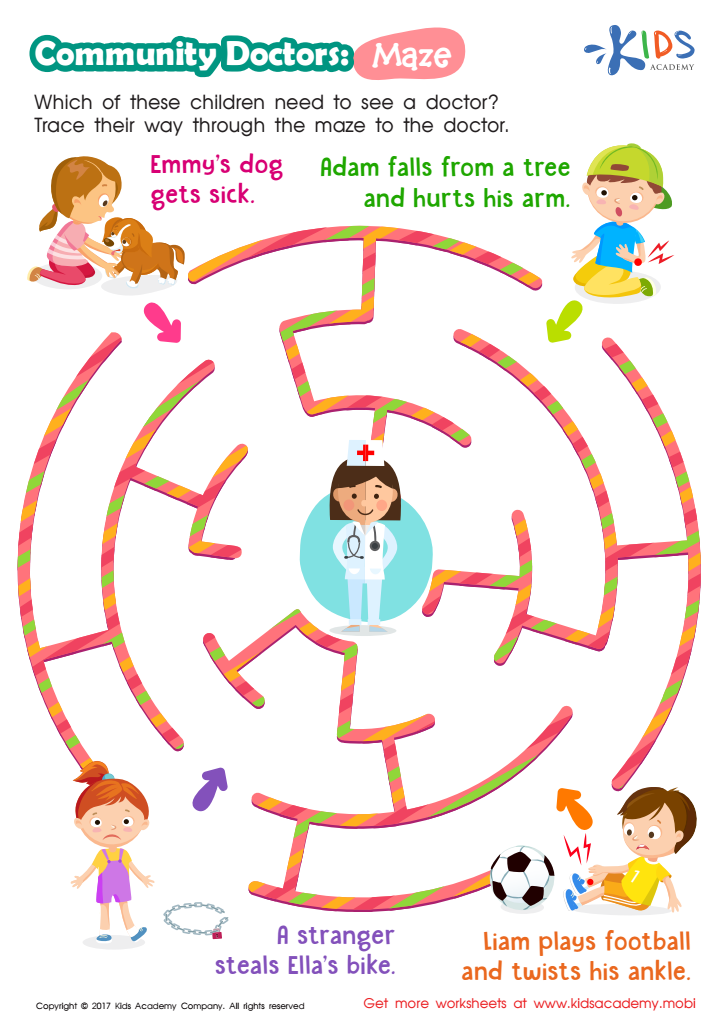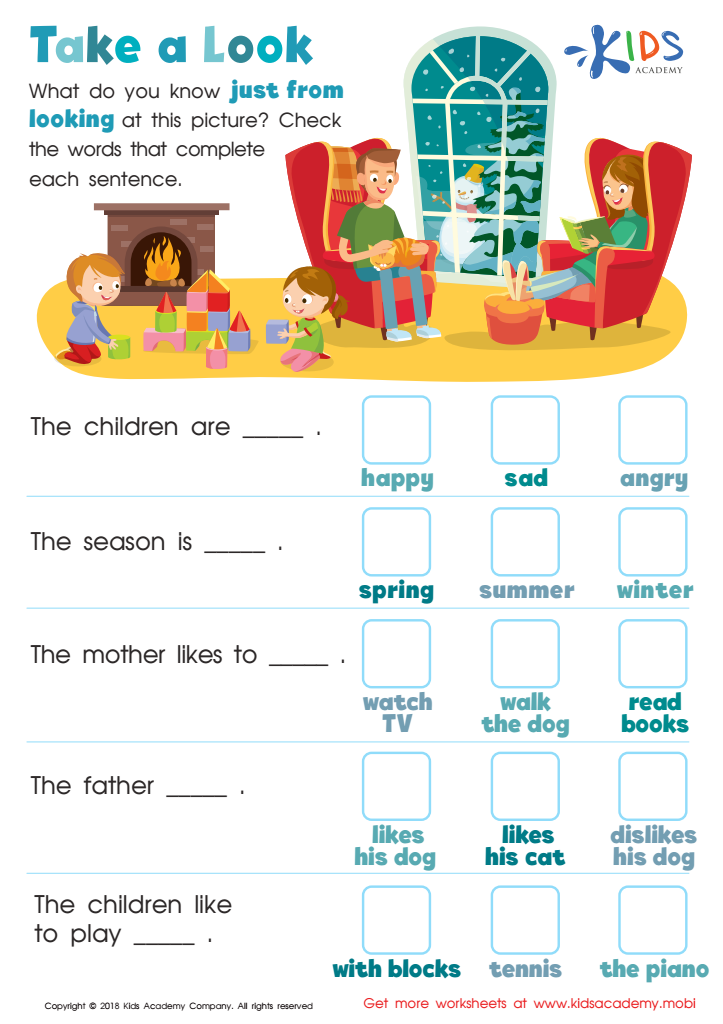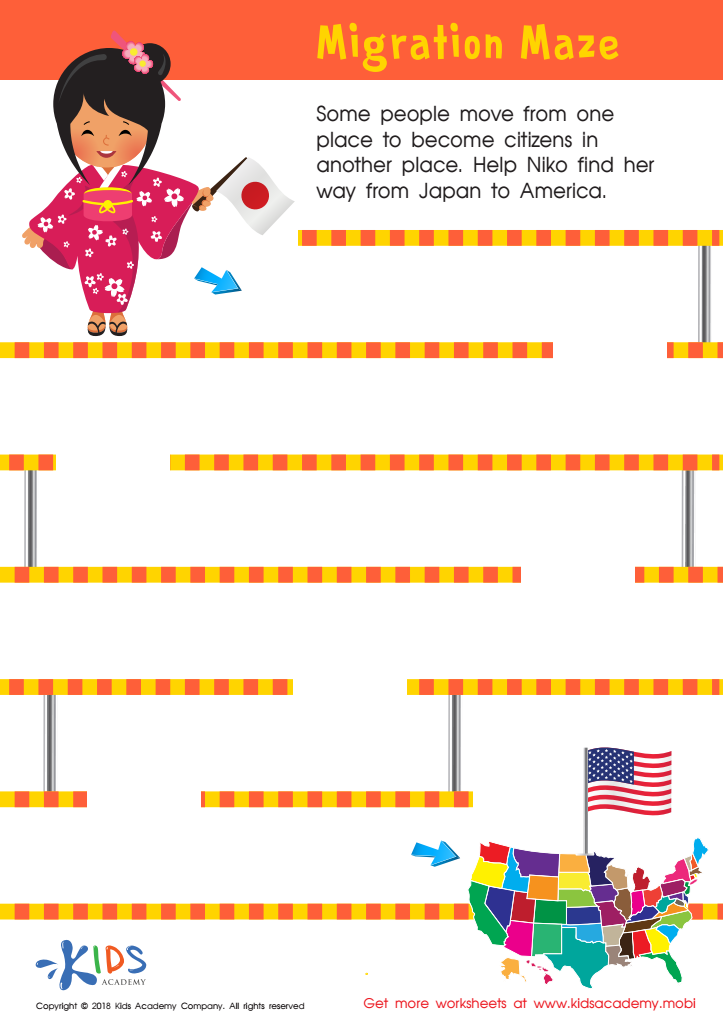Problem-Solving Skills Normal Community Worksheets for Ages 5-7
5 filtered results
-
From - To
Enhance your child’s critical thinking and problem-solving abilities with our engaging community-themed worksheets designed specifically for ages 5-7. These worksheets introduce essential skills through fun, interactive activities that encourage kids to navigate everyday challenges within their community context. From identifying solutions to simple dilemmas to working collaboratively on group scenarios, children will build resilience and resourcefulness while learning constructive ways to approach problems. This foundational skill set not only supports academic growth but also empowers young learners to become confident decision-makers. Explore our collection of worksheets today and watch your child thrive as they tackle real-world challenges creatively!


Community Doctors: Maze Printable


Towns Worksheet


Take a Look - Part 1 Worksheet


Migration Maze Worksheet
Problem-solving skills are essential for children aged 5-7 as they form the foundation for critical thinking and effective decision-making. Children at this age are naturally curious and encounter various challenges in their everyday lives, whether it be during playtime, interactions with peers, or completing schoolwork. Cultivating problem-solving skills helps them learn how to approach and resolve these challenges systematically.
For parents and teachers, nurturing these skills promotes independence and resilience. When children learn to identify problems, brainstorm possible solutions, and evaluate their outcomes, they gain the confidence to face obstacles without feeling overwhelmed. These skills are not only crucial for academic success but also for social development. Children adept at solving problems tend to have healthier interactions with their peers, ensuring they can navigate conflicts constructively and build strong relationships.
Moreover, teaching problem-solving in a normal community reinforces collaboration and creativity. It allows children to work together, share diverse perspectives, and appreciate each other’s contributions. Encouraging young learners to think critically not only prepares them for future academic challenges but also equips them with the life skills necessary for the demanding world ahead. By prioritizing problem-solving skills, parents and teachers invest in a child's holistic growth and success.

 Assign to My Students
Assign to My Students

















